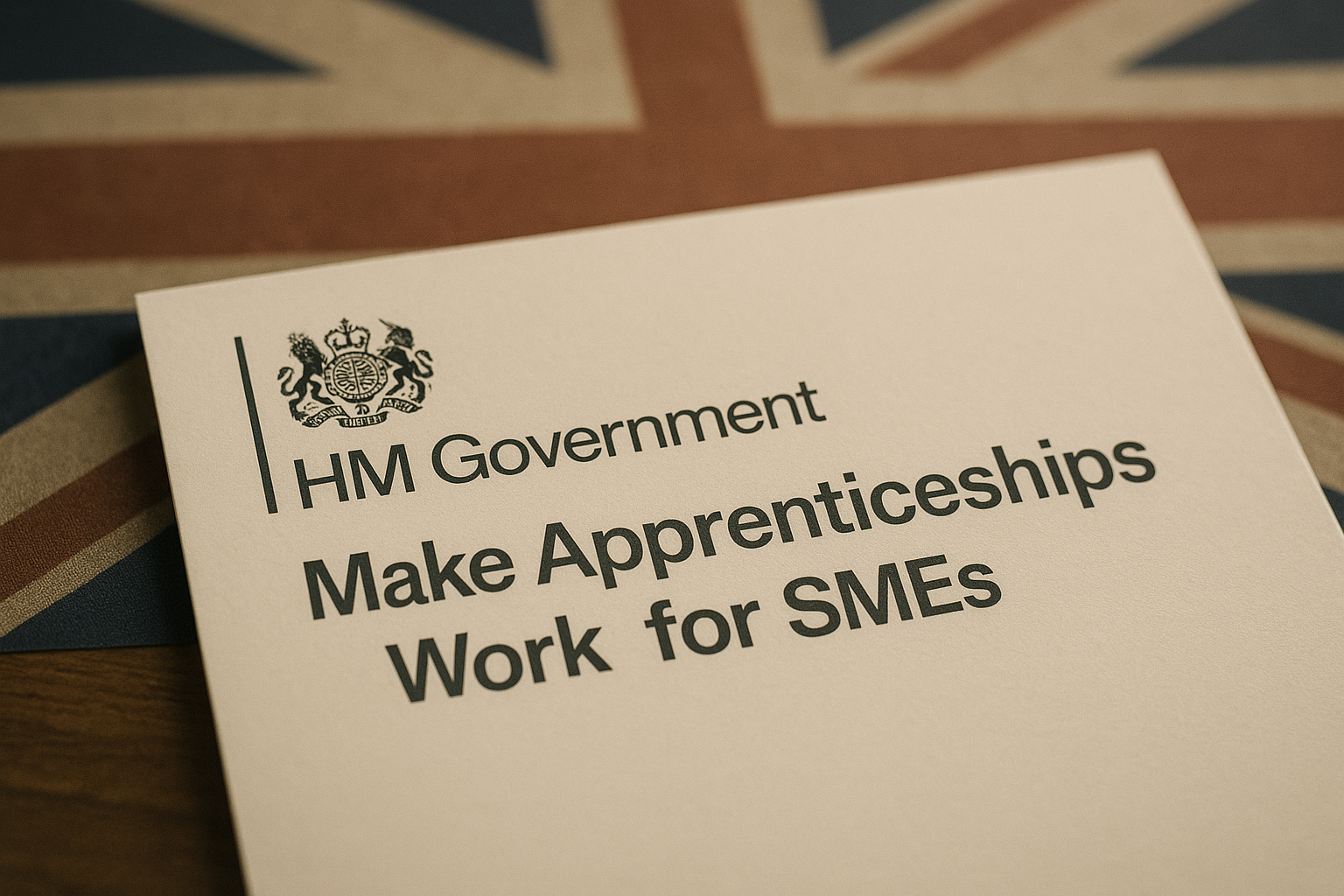
An Open Letter to Government: Make Apprenticeships Work for SMEs

4 mins read
By Crispin Read - 3rd Oct 2025
Apprenticeships are one of the best routes into skilled work. But right now, they’re not working for the businesses that make up most of the UK economy: SMEs.
We’ve written an open letter to ministers calling for three simple changes that would make apprenticeships more viable for small firms – and better for young people, too.
Read the letter below. If you agree, add your name using the form at the end of the page.
To:
Baroness Smith of Malvernn Minister of State for Skills, Apprenticeships and Higher Education Department for Education
The Rt Hon Bridget Phillipson MP Secretary of State for Education Department for Education
Open Letter: Empowering Apprenticeships in SMEs - Because Opportunity Should Scale
The government's £800m boost for further education is a big step forward. As specialists in SME apprenticeships, we see daily how practical barriers stop smaller businesses from taking on apprentices. If we want this investment to work, we need to fix that.
This is important for business and society
The numbers tell the story: 99.8% of UK businesses are SMEs, employing 16.6 million people and generating £2.8 trillion in turnover [GOV.UK]. Our work with these smaller businesses shows us exactly what stops them taking on apprentices - and what would help them start.
The problem isn't ambition, it's risk. For a small business, taking on an apprentice means betting on potential. New apprentices need time to develop before they deliver value, and that's a cash-flow challenge many firms can't handle. When you're running a small business, finding time to train new talent often feels impossible.
This unlock matters not just for growth, but for fairness and opportunity. Apprenticeships are uniquely positioned to improve social mobility and inclusion:
- For disadvantaged women, completing an intermediate apprenticeship yields a 16 % earnings boost at age 28 compared to peers without. GOV.UK Assets
- Apprenticeships close gaps in access: deprived pupils are just as likely to take apprenticeships as their peers, while lower representation is more visible in selective universities. QA
- In one apprenticeship programme, 23 % of entrants had been eligible for free school meals — showing that these pathways reach lower-income cohorts. FE Week
- More broadly: social mobility remains locked by background. Young people from lower socio‑economic starting points are far less likely to reach higher occupational strata. Social Mobility Commission
If we want a more inclusive, innovative economy, SMEs with apprentices can drive that shift.
What we propose: two focused policy levers for real change
- Full funding for SMEsFor a trial period, even 12 months, cover 100% of apprenticeship training costs for SMEs, rather than the current 95%. That final 5% is often a barrier in itself – financially, but also administratively. Remove it, and more businesses will get over the line. Where the levy transfer system is used to plug this gap, it should be seamless everywhere. Some regions like West Yorkshire already make it easy. That approach should be standard nationwide.
- Support with early wage and on-costsAt the start of the apprenticeship, the employer applies for a grant based on expected wage and on-costs for the first three months. Once the apprentice reaches that three-month point – still on programme, progressing well, and confirmed by the training provider – the grant is paid out to the business. It’s a simple way to ease early financial pressure and encourage more SMEs to take on apprentices.
- Readiness training for host teamsA short, subsidised course to help SME teams prepare for taking on an apprentice. What to expect, how to manage them, how to make it a success. It builds confidence and sets both learner and business up to succeed.
Because we see this every day working with SMEs in training and skills support, we believe these three levers would remove some of the sharpest blockages. We’re dedicated to enabling SMEs to take on apprentices with greater confidence.
There are around 5.5 million SMEs in the UK. Even if only a small additional share of those could reliably bring on one or two apprentices, the impact on apprentice starts, social mobility, innovation, and economic growth would be large and lasting.
Let’s make sure this £800m goes further. Let’s make it reach where it can multiply.
Best regards,
Crispin Read
CEO, The Coders Guild
